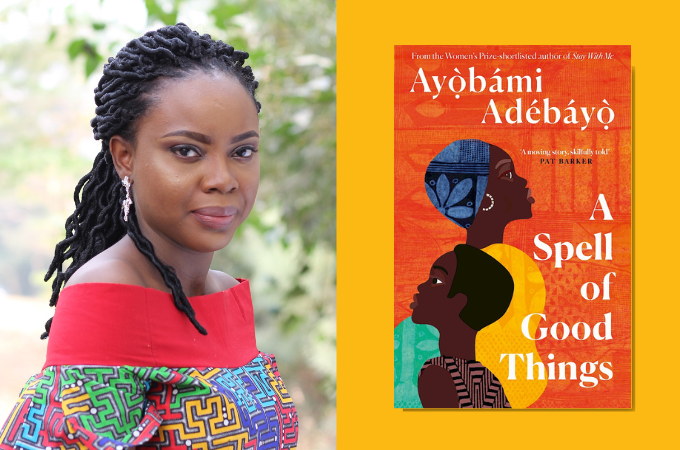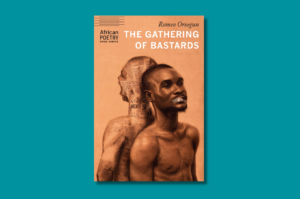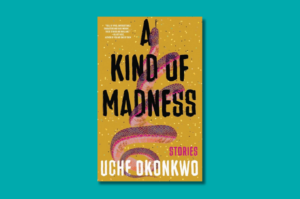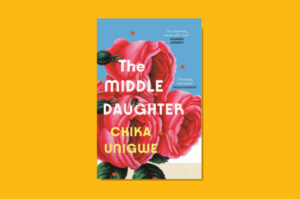
Set in Ilesha, Osun State, A Spell of Good Things tells the story of Eniola Oni and Wuraola Makinde by juxtaposing their lives to show the reality of social inequality. The novel getting launched around the same time as the election was the icing on the cake as it explored the theme of political thuggery, which was very prominent during the election.
The novel explores the themes of poverty, abuse, bad leadership, political thuggery, love, and sisterhood. Adebayo does this by using the first-person point of view, letting some of the characters tell their stories. Eniola Oni is a 13-year-old boy whose family got thrown into a state of abject poverty after his father lost his job. Wuraola, on the other hand, is a 28-year-old medical doctor who goes through a series of abuses at the hands of her fiancé.
While reading the novel, one of the themes that stood out to me is the way all the women in the novel were either supportive of another woman or the people in their lives. On Yeye’s — Wuraola’s mother’s — 50th birthday, Adebayo takes us back to young Yeye’s life. In the flashback, we learn that Aunty Biola, Yeye’s elder sister, was and still is her pillar. It was Aunty Biola who made sure Yeye was okay after their mother died in the same car accident that Yeye survived. After their mother’s death, it was Aunty Biola who promised Yeye that “I will take care of you, don’t worry, I will take care of you.” It was Aunty Biola who made sure Yeye and her sisters ended up with good husbands — it was through her that Yeye met her husband Otunba. Even on Yeye’s 50th birthday, Aunty Biola was the one making sure that everything was okay. And she does all of these as an act of duty. It’s why every time Yeye shows her gratitude, she tells, “I’ve told you to stop thanking me for doing my duty.” The love between sisters, I think, is one of the greatest forms of love. Yeye and her sister remind me of my elder sister and myself. Our relationship is sacrificial yet great.
I’d like to believe that if Abosede, Eniola’s mother, had sisters, they wouldn’t allow her to make extreme decisions like begging in the street with her children for money. Growing up in Ibadan, I saw siblings scattered along relatives, so I know for a fact that one of them would have taken responsibility for one child.
The first time Kunle hit Wuraola, in front of Motara, Wuraola’s younger sister, Motara kept telling her sister to leave Kunle. Even though Wuraola told her she could not understand and threw her under the bus in front of their parents, Motara persisted. When Wuraola decided to break up with Kunle, it was Motara she told first. I really liked Motara’s character because it mirrored women like me whom society labels as rebellious. I particularly loved that she rejected the idea that women are meant to aspire to marry. I loved that she rejected respectability politics by deciding to call her sister’s fiancé by his name. Most importantly, I loved that she did not let her sister’s abuse slide. Motara’s character was important in showing the victims of abuse that there are people who’ll support and fight for them when they choose to leave an abusive partner. Wuraola’s friends are also not left out. Even though they were not aware she was being abused, we get to see the kind of women and friends they are through Wuraola’s refusal in telling them about it.
I’d love to think that domestic violence in romantic relationships and marriages will decline if victims are assured of a safe non-judgmental space when they leave. Like Wuraola’s sister and friends, having a great support system will encourage women to leave their abusive and toxic partners. In addition, if there isn’t so much pressure on women to get married or have a man, many women will always leave. If parents are not dismissive and trying so hard to please society, victims can always leave knowing their families will receive them with warm hugs.
Abuse is a very common occurrence in Nigeria. But a lot of Nigerians think abuse can only happen between couples or romantic partners. In Nigerian schools, for instance, pupils and students are flogged for ridiculous reasons like not paying school fees or failing a test. This kind of abuse has become so normalised because it is seen as a way of righting a student’s wrong. Eniola and his sister Busola were constantly getting flogged by their school teachers for not paying their tuition fees. When luck finally smiled on their mother and she was able to raise money for their fees, she could only pay for Busola. This vexed Busola because not only will Eniola not be able to learn anything in school, but he’ll also keep getting flogged. Reading this scenario was emotional because of the way she stood up for her brother. Once more, their relationship reminds me of myself and my immediate older brother who I used to go to the same secondary school with. I was always looking out for my brother and I still do. No foul words must be said about him, especially not to my hearing, and I despised seeing him flogged by teachers. Both rebellious and outspoken, I applaud Adebayo for the way she made these traits powerful tools for change in the characters of Motara and Busola. These traits also manifested in their devotion to making sure their loved ones are okay no matter what.
There is also Aunty Caro and Yeye’s relationship which was an acquaintanceship but seemed like a sisterhood where they were both respectful of each other.
Overall, I enjoyed how Adebayo explores the theme of sisterhood in the novel. It could serve as a catalyst for women to build more valuable relationships with other women because it’s only women who truly understand women’s plights. Also, by doing this, she deconstructs the notion that women are each other’s enemies.
***








Loveth May 17, 2023 08:01
I haven't read the book but reading this review brought lot of memories and I see my self in some of the character. The review will endear me to read this book,this is a job weldone.